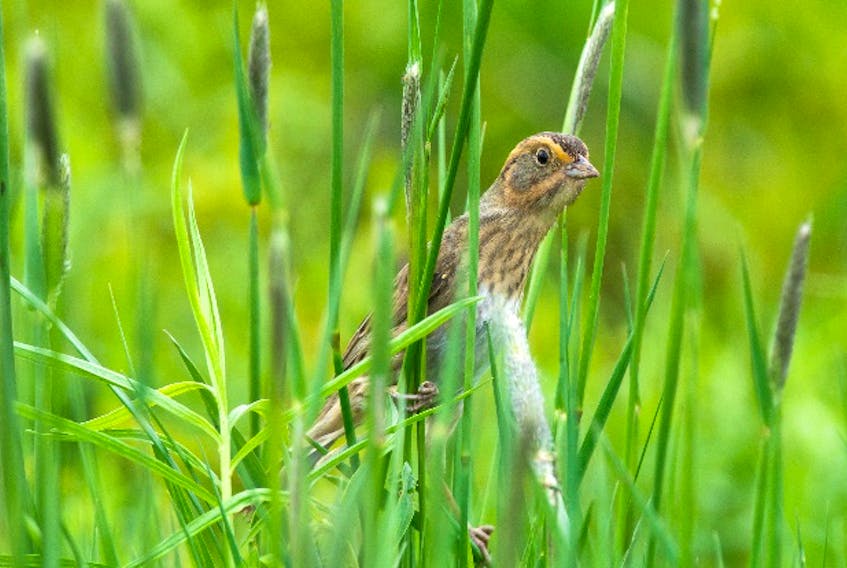Wildlife technicians and volunteers surveying marshes on Prince Edward Island last spring were surprised to find bird species that are not common to the Island.
The surveys were part of Bird Studies Canada’s Maritimes Marsh Monitoring Program, which tracks long-term changes in the health of wetlands — imperiled ecosystems that provide essential services to humans and wildlife.

The technicians and volunteers completed 63 point counts in freshwater, coastal and forested wetlands on P.E.I., detecting more than 60 wetland-associated bird species.
In addition to common birds, including the red-winged blackbird, common yellowthroat and American robin, less-common species such as the specialized Nelson’s sparrow, elusive Virginia rail, and the gray jay were also discovered.
Surveys were conducted with support from the P.E.I. Wildlife Conservation Fund; P.E.I. Department of Communities, Land and Environment’s Forests, Fish and Wildlife Division; the Bedeque Bay Environmental Management Association; and Trout Unlimited Canada’s Prince County chapter.
Wetlands filter and purify water, protect shorelines, reduce erosion, store carbon and provide habitat for a diverse range of plants and animals, but have been rapidly declining in number, size and quality throughout North America.
Wetlands that remain are often threatened by pollution, filling, draining and other human impacts, and are in need of protection and monitoring.
Bird Studies Canada’s Maritimes Marsh Monitoring Program aims to better understand the effects of stresses on wetlands by monitoring the birds that call wetlands home for the spring and summer. Data collected in 2017 will help provide a baseline from which to measure future changes in bird communities on the Island.
The Maritimes Marsh Monitoring Program receives financial support of the Government of Canada, the New Brunswick Wildlife Trust Fund, Ducks Unlimited Canada and the P.E.I. Wildlife Conservation Fund.









